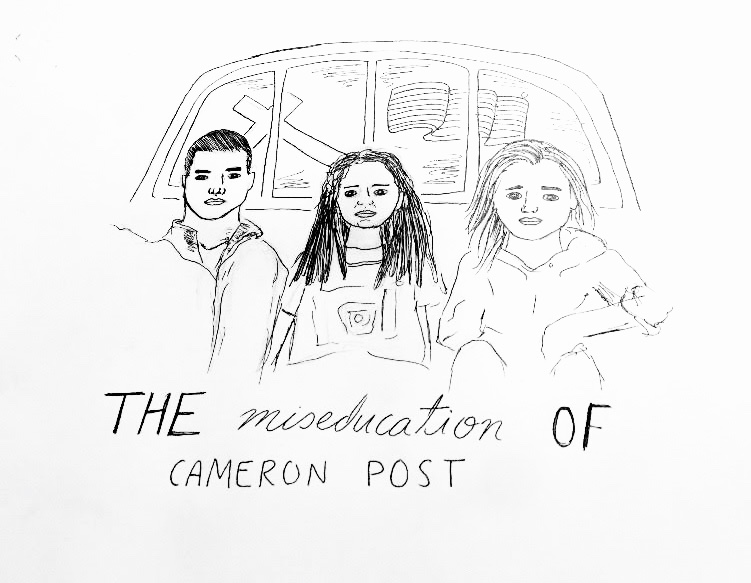Gay in the ’90s: A Fictional Story of Homophobic History
September 27, 2018
Directed by Desiree Akhavan and based on the YA novel by Emily Danforth, the summer 2018 film The Miseducation of Cameron Post is truly a striking piece of cinema. The fictional story follows the life of lesbian teen, Cameron Post, played by Chloë Grace Moretz, when she is shipped off to a Christian gay conversion therapy camp. After being caught together with a girl in the backseat of her boyfriend’s car, Cameron is sent to “God’s Promise,” where she discovers other high school teens forced to address their “SSA” (same-sex attraction) as not just a problem, but an evil tendency.
The theory that homosexual attraction can and should be eliminated by religious-based counseling was not too long ago an accepted practice in American culture. Although never actually sent to one of these camps herself, Danforth drew on her closeted past in her less-than-accepting Montana hometown in the 1990s as inspiration for the story.
At God’s Promise, Cameron meets a mix of kids, some who believe in the theory of the school—that their sexual identity is a product of evil—and some, like herself, who try to fight the tactics of the program. The program teaches these kids that their innate identity is wrong, dangerous, and anti-Christian. Akhavan presents a gloomy picture of this depressing reality; she does not back down from long, uncomfortable silences, nor from presenting painful scenes.
Far from a documentary on homophobia, Miseducation shows this piece of history from a unique angle. Akhavan is much more interested in having the audience know these characters intimately rather than in preaching a lesson.
In the titular role, Moretz gave a heartbreaking performance that shows her ample versatility as an actress. Sasha Lane and Forrest Goodluck, playing Jane and Adam, Cameron’s companions at God’s Promise, also held their own in bringing their characters’ unique stories to life.
This film, because of its heavy content, is definitely one to watch with caution. As trauma and depression are central themes, it may be too upsetting for some. It is unrated in theatres, likely because the audience that might find the film the most disturbing are the people for whom this story was made. Any teenager, whether identifying as straight or LGBT, can relate to the characters, their emotions, and their struggles.
The beauty of Miseducation is just this: it presents the story as any other coming-of-age film. In the 21st century, it is more accepted and understood that finding one’s sexual identity is a part of the coming-of-age process. Miseducation reminds us that the diverse spectrum of sexual identities has always existed, but without the open-minded perspective, the freedom, or the vocabulary to express it, queer teens were forced to face this part of growing up on their own.
This piece also appears in our September 2018 print edition.










